Nutritionist Michael Joseph publishes the Nutrition Advance website in the US which provides independent, evidence-based nutrition and health information backed by peer-reviewed studies as evidence. Here he takes a closer look at the health benefits of beef.
Don’t miss Beef Central’s free daily beef news – to subscribe to our free daily email
A generation or two ago, our parents and grandparents viewed beef as a nutritious health food.
But now? These days it’s much different, and opinion is split between whether beef is healthful or harms our health.
Some of the more extreme vegan views even call for the authorities to remove meat from the food supply.
Whatever our opinion on red meat might be, there are some important health benefits of eating beef.
This article takes a close look at 11 of them.
1. Beef Provides a Large Source of L-Carnitine
L-carnitine is an amino acid that occurs naturally in meat products.
In the table below, we can see the L-carnitine content of beef compared to some other animal foods and plant foods (1);
Why is L-Carnitine Important?
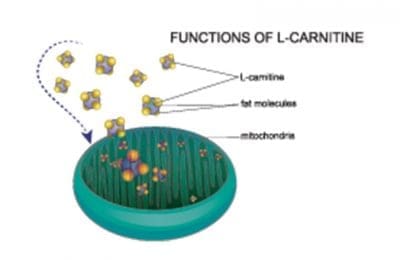 Among other functions, L-carnitine plays a part in fat metabolism.
Among other functions, L-carnitine plays a part in fat metabolism.
As part of this, L-Carnitine does the job of transporting fats into our mitochondria for burning.
It’s important to clarify that our body can synthesize sufficient amounts of L-carnitine for general needs; this makes it a non-essential amino acid.
The body synthesizes L-Carnitine within the liver and the process relies on the amino acids L-lysine and L-methionine (2).
As a result, deficiencies are rare.
However, research suggests that a higher dietary intake of L-Carnitine may have some positive health impacts.
Various studies show the following findings;
Heart Health
A meta-analysis of randomized trials suggests that L-carnitine improves patient outcomes. Specifically, it exerts an effect on hypertension, oxidative stress, nitric oxide, and inflammation.
A further systematic review found that L-carnitine is associated with a 27% reduction in all-cause mortality in heart failure patients (3, 4).
Diabetes
A systematic review shows that higher L-carnitine intake in type 2 diabetes patients improves fasting glucose levels and the overall cholesterol profile (5).
Weight Loss
According to a systematic review and meta-analysis of nine randomized controlled trials, subjects using L-carnitine supplementation lost “significantly more weight” than the control group (6).
It’s worth noting that while there are many L-carnitine supplements around, the absorption rate is poor in comparison to beef.
In fact, our body only absorbs around 14-18% of the synthetic form of the nutrient (7).
Key Point: L-carnitine is an amino acid that naturally occurs in beef. It has a positive impact on various health markers.
2. Beef Provides the “Master Antioxidant” Glutathione
Commonly known as the ‘master antioxidant,’ glutathione has a score of research linking it to (8);
- Anti-aging benefits
- Increasing longevity
- Preventing illness
- Reducing the risk of chronic disease
- Strengthening the immune system
It helps protect every cell in our body from cellular damage, which can lead to many chronic diseases.
On the other hand, a deficiency in glutathione contributes to oxidative stress and inflammation (9).
As a result, keeping glutathione levels high is important for our overall health.
Subsequently, the question becomes “how can we keep our glutathione levels high?”
Endogenous Glutathione Production and Dietary Sources
First of all, our body produces glutathione endogenously.
In other words, our body uses raw materials (in this case: amino acids) to make glutathione.
For this process to occur, we should have adequate levels of the amino acids cysteine, glutamate, and glycine (10).
These amino acids are known as glutathione precursors, and each of these amino acids is present in beef.
On the positive side, beef also contains a reasonably high source of complete (pre-formed) dietary glutathione.
Key Point: Keeping our glutathione levels high is critical for good health, and beef is a food that helps us to achieve this. Glutathione detoxes our body better than any ‘detox plan’ or supplement can.
3. Beef is High in Protein and Helps Improve Muscle Mass
There are numerous reasons why we should strive to ensure a sufficient protein intake and these include;
- Protein is the building block our body uses to repair and make bone, skin, and cartilage.
- Sufficient protein helps us to build and maintain lean muscle mass.
- Out of all macronutrients, protein is the most satiating, and it discourages food cravings.
Beef is packed with health-promoting amino acids, and it’s one of the single biggest sources of protein in the human diet.
For instance, a 6oz (170g) portion of 80% lean beef provides 46g protein.
Should we opt for a leaner variety of beef, the protein content can be even higher (11).
The Importance of Lean Mass
As we age, building—or at least holding on to—lean mass should be a priority.
Research shows that older adults with lower muscle mass are at a higher risk of mortality.
Speaking bluntly, the more skeletal muscle mass someone loses as they age, the higher their risk of an earlier death (12).
Also, the rate of muscle protein synthesis rapidly drops as we age, making it a lot harder to build and maintain muscle (13).
Considering this, we should ensure we’re eating a sufficient amount of protein – this is especially essential for elderly people.
On this note, beef is one of the best protein-rich foods out there.
Key Point: Protein is essential for optimal health, and especially so as we age. Beef provides an abundant amount of this macronutrient.
4. Beef is Extremely Rich in Minerals
If you’re looking to increase your intake of various minerals, then beef is one of the best options to consider.
First of all, beef is relatively nutrient-dense in minerals.
Here we can see the mineral content of 80% lean beef (11);
As shown in the table, beef provides more than half of the day’s recommended amount of selenium and zinc.
Many people have deficiency issues with some of these minerals.
So, the nutritional value of beef can help fight prevalent global deficiencies in iron, magnesium, and zinc (14, 15, 16).
Key Point: Beef is rich in several essential minerals—especially iron, phosphorus, selenium, and zinc.
5. Eating Beef Helps Prevent Iron Deficiency Anemia
We touched on mineral deficiencies in the last point, but iron deficiency anemia deserves a mention of its own.
Sadly, iron deficiency anemia is a growing epidemic around the world.
In a developed country such as the United States, nutrient deficiencies shouldn’t be a cause of death, yet anemia kills thousands every year.
To be exact, the latest release of statistics showed that Anemia hospitalized 146,000 Americans in one year. 5,219 of these people died (17).
Globally it’s even worse, and according to the World Health Organization, 1.62 billion people suffer from iron deficiency anemia (18).
Heme and Non-Heme Iron
There are two types of iron available in food, and we refer to them as heme and non-heme iron.
- Heme Iron: Heme iron is the most bioavailable form of iron, and meat and other animal foods exclusively contain it.
- Non-Heme Iron: Non-heme iron is found in plant foods such as fruit, vegetables, and nuts. In comparison to heme iron, our body finds it more difficult to absorb.
One of the best health benefits of beef meat is that it contains a substantial amount of heme iron.
The best source of all? Beef liver.
Interestingly, anemia disproportionately affects females. Perhaps this isn’t a huge surprise when we think about how society seems to shame women who eat meat.
The imagery of women smiling while eating a bowl of salad is quite ubiquitous.
Key Point: Eat more beef to help prevent iron deficiency anemia.
6. Beef Contains Carnosine, a Potent Amino Acid
Another advantage of eating beef is that it provides an abundance of carnosine.
Carnosine (beta-analyl-L-histidine) is an amino acid found throughout the body, and it has several important roles in human health.
As beef is one of the highest sources of carnosine (containing about 50% more than poultry), this is another health benefit.
What Does Carnosine Do?
For one thing, carnosine has anti-glycosylation properties.
To be exact, carnosine reduces the harms of a process called ‘glycation’ which involves advanced glycation end-products (AGES).
Glycation is central to the aging process and progressively damages our body, potentially leading to atherosclerosis and various other chronic diseases (19, 20).
Additionally, carnosine helps boost the immune system and reduce inflammation. The amino acid is also thought to help prevent lipid peroxidation within our cells (21, 22).
Key Point: Beef (and red meat in general) is the best dietary source of carnosine.
7. Beef is Full of Vitamins
There are many important nutrients in beef, and those present in significant amounts include the range of B vitamins (11);
Additionally, beef also contains smaller amounts of vitamins E and K.
Vitamin B12 (cobalamin) is a notably essential nutrient, and this is because it is only available from animal foods.
This vitamin also has a wealth of benefits that include skin improvements, positive mood, better sleep, and neural regeneration (23, 24).
It’s important to realize that insufficient vitamin B12 may also increase the risk of depression and mental health issues (25, 26).
Fortunately, a 6oz serving of beef provides almost 100% of the recommended amount of B12.
Those most at risk from B12 deficiency are vegetarians/vegans, and these groups should supplement with the vitamin.
Key Point: Beef is high in B vitamins which help promote health. Vitamin B12 is particularly important since it isn’t present in plant-based foods.
8. Conjugated Linoleic Acid
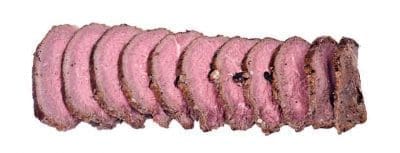 Otherwise known as CLA, conjugated linoleic acid is a naturally occurring trans-fat.
Otherwise known as CLA, conjugated linoleic acid is a naturally occurring trans-fat.
Don’t worry, although the “trans-fat” name is a little scary, it has a very different effect to the synthetic version.
Randomized controlled studies involving human participants suggest that;
- Conjugated linoleic acid helps to improve insulin sensitivity (30)
- CLA appears to promote fat loss (31, 32)
Notably, the bulk of the evidence suggests that getting CLA from real food is better than supplementation (33).
As is usually the case, perhaps nutrients in whole foods have a different effect to a synthetic pill?
Food Sources of CLA
The top sources of CLA include meat and dairy products.
After lamb and certain cheeses, beef is the next highest provider of the nutrient.
Although all beef contains CLA, meat fed with grass or quality hay offers a significantly higher amount of CLA than meat from non-ruminants.
Specifically, the average amount of CLA in grass-fed beef is 0.46% of the fat content.
With grain-fed beef, this average content drops to 0.16% of fat (34).
Key Point: Beef—especially from grass-fed cows—is one of the highest sources of conjugated linoleic acid.
9. Beef Contains the Performance Enhancer Creatine
Almost everyone knows the dietary supplement version of creatine, but did you know that beef contains it too?
In fact, beef typically contains 350mg creatine per 100g (35).
The health benefits that creatine bring include;
- Improved exercise performance
- Creatine assists in muscle growth and development
- Provides muscles with greater energy supply and improves endurance
- Increased muscular size
It’s also worth noting that our liver can produce about 2g creatine per day, depending on the pre-cursors being available.
Creatine precursors include arginine, glycine, and methionine (36).
Not only are all of these amino acids present in beef, but beef is one of the single most significant dietary sources for them.
In other words, eating beef gives you a decent amount of dietary creatine, and it helps your body to produce it too.
Key Point: Beef has two positive impacts on creatine levels. Firstly, it directly provides it to the body and secondly, it helps the body to make it.
10. Beef is Very Affordable
 We may hear how beef is so much more expensive than vegetables and other plant-based foods.
We may hear how beef is so much more expensive than vegetables and other plant-based foods.
For some reason, these claims often compare broccoli to beef.
However, these calculations are a little disingenuous. Yes, broccoli is indeed a lot cheaper than beef per 100g.
But just how much energy does 100g provide?
200g of beef will typically provide around 550 calories, but 200g of broccoli only contains 70 calories (11, 37).
This means that per 100g, beef contains eight times the amount of energy than broccoli.
It is therefore apparent: per calorie, beef is substantially cheaper than broccoli – and probably every vegetable.
Key Point: Per calorie, beef is a very affordable food – it’s cheaper than vegetables.
11. Beef is Very Simple to Make
This one isn’t a health benefit as such, but it could be if it encourages more home cooking.
Beef is a straightforward food to cook. It requires no lengthy recipe or complex preparation procedures.
Add a little salt, put it in the oven, and wait until done.
In an age where people claim not to have time to cook, a traditional dinner of beef and veggies is very simple and time-efficient.
Key Point: Beef requires minimal preparation, and it’s quick and simple to cook.
Final Thoughts
Beef contains dozens of health-promoting nutrients that we need in our diet.
Sure, there are other foods which offer some of the same positives, but not in the same amount.
Overall, it is one of the most nutrient-dense foods in the human diet.
Bottom line: there are many health benefits of eating beef.
This article was originally published on Michael Joseph’s Nutrition Advance website and is republished here with his permission. Michael Joseph is a US nutritionist who holds a Master of Science Degree in Nutrition Education. To visit his website click here


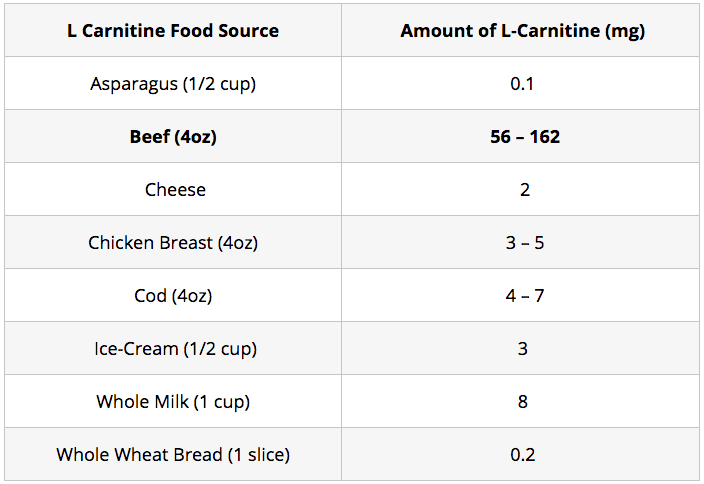
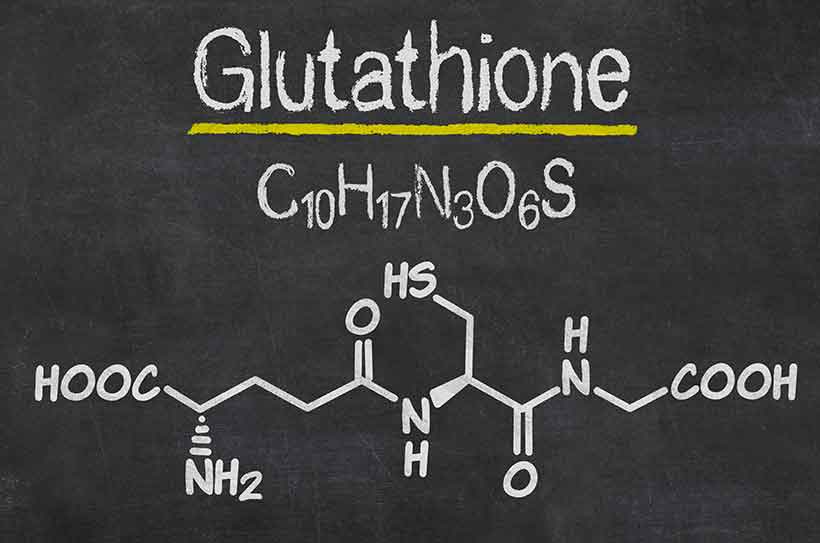

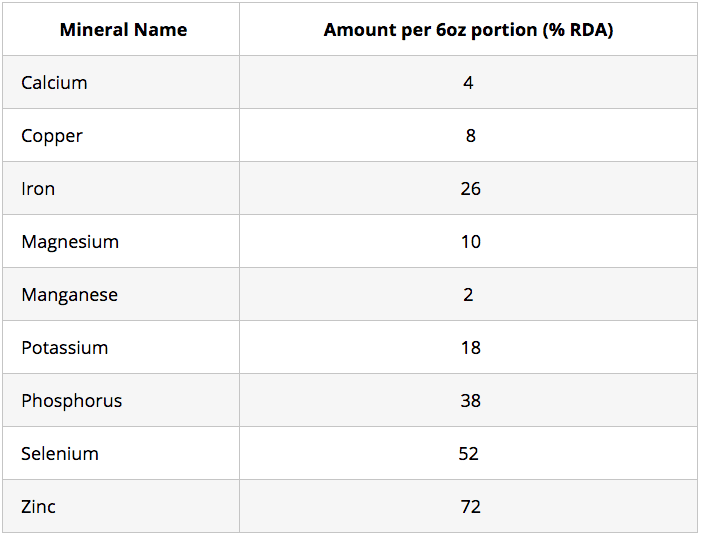
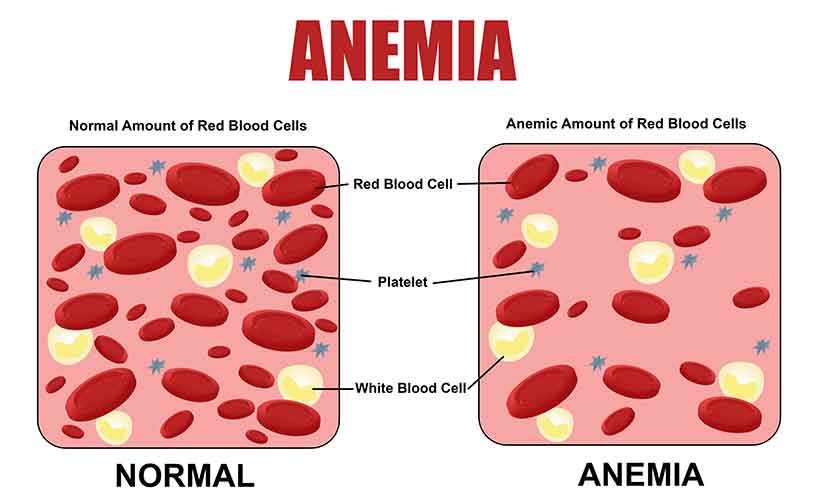
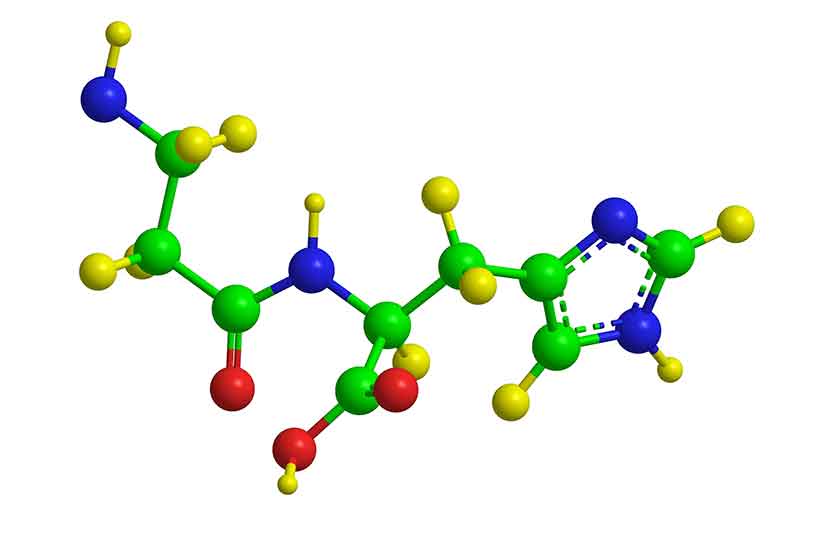
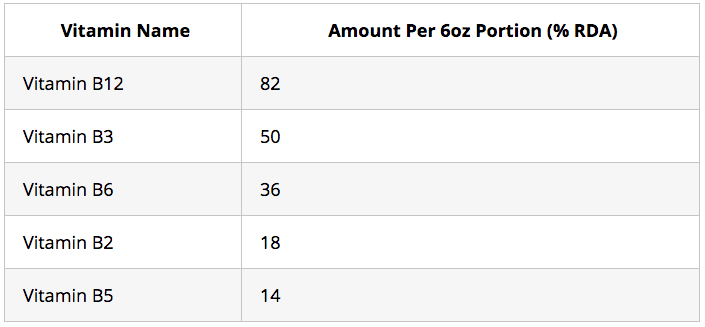
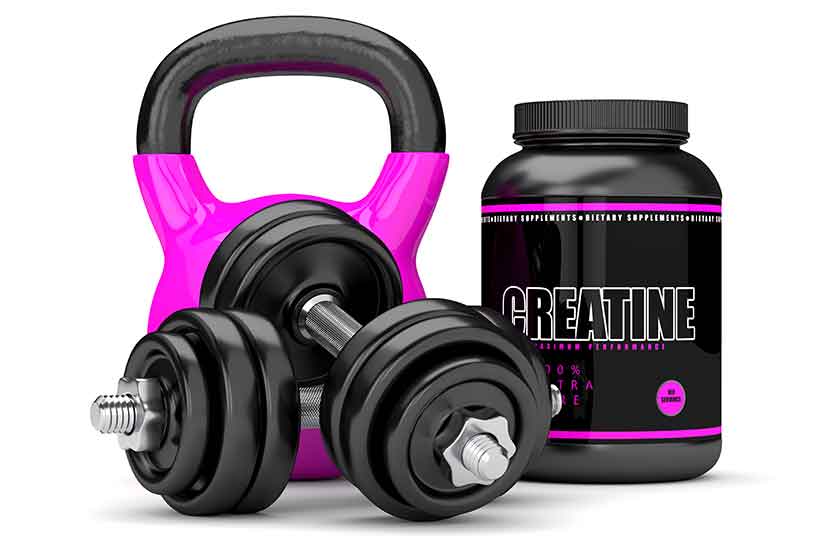
The issues raised are very exciting. I honestly liked the points. Thanks a million
Thanks for your information.
Thank you for your article. My favourate food is
Beef Steak.
I will continue eating my steak as you supported it.
As a gym instructor, I try to educate myself a lot of what is and what’s not so good for the body. I bought minced beef last night and prepared for dinner and wanted to the nutritional benefits. What you provided what more than I bargained for. I fell asleep reading and just got back up to finish reading. Thank you for such potent information. It is true, I slept like a baby. Beef is my go to now.
Hi.
Thx for your article!
Is red meat acidic? I read in an article the other day that it’s not! So I’m confused!
Would you be able to explain that?
Thank you.
In order to qualify for Meat Standards Australia grading, beef carcases must have a pH of 5.7 or less. So yes, slightly acidic. Carcases with higher pH (ie 5.71 or more) tend to be tougher. Editor
I have always loved beef but felt guilty eating it. All the health problems Americans have with heart disease and cholesterol are blamed on animal products. I am trying the Carnivore lifestyle just a week in and I love it! This is a great article. Thank you!
I never know the value of beef that was so important to the human body is amaze me what I just read in your house it is mint. I am so happy I read it I’m a diabetic and you know beef is something that I do not preferred because he keeps stuck in my teeth but now I find the value of it. I am definitely going to absorb this. Thank you for your information and that’s a very good and educated information that you give soul.
Grate information, thank you
This is an excellent article. I recommend that people look up Dr. Gabrielle Lyon, who is an expert on skeletal muscle. She supports this sort of information and has several important areas of expertise.
I went on a trip to Morocco, over a decade ago. I did not know any of these facts. We had all inclusive and ate a lot of beef and other meats, with cooked vegetables. We were touring in a bus, walking for short periods, daily and stuffing ourselves on delicious food. I was really shocked when I began to suddenly lose weight, so that my jeans were loose around my waist. I did not understand why this was occurring. It was exactly the opposite of what one would expect.
I love beef. My doctor recommended it to me for various things i was dealing with years ago. Of course I was skeptical, but I gave it a shot. After some time, eating this way had a great impact on healing my body, I never felt better. I thank my doctor for going against all the opposition and suggesting it to his clients a real food that worked.
Its great that you talked about how beef is high in protein and helps improves muscle mass. I am currently going to the gym and I am trying to bulk up with my muscles. Eating beef sounds like a good idea so I’ll try to get some from a middle eastern market nearby.
https://alaqsameatmarket.com/services.html
I have just read the article by the WEF (World Economic Forum) smearing BEEF in favor of eating ALGAE – unbelievable… BILL GATES is producing ‘fake’ synthetic beef and says we need to acquire a taste for it over BEEF so that we can stop eating Beef and ‘save the Planet’. I find their Agenda shocking !!! https://neonnettle.com/news/19202-world-economic-forum-calls-on-humans-to-eat-algae-to-save-the-planet-
It’s a helpful meterial, I made many expects clear that are unknown for me..
I started a high beef diet about eighteen months ago. I had carried out some research as to benefits of a high beef diet after watching a YouTube video by Michaela Peterson, she had a very serious joints issues which included her having a couple of joints (ankle and hip iirc)replaced in her early teens.
Since my high beef diet I have lost all joint pain, I’m 66 years now. My mood has improved immeasurably too; just ask my wife.
I am still a motor mechanic.
I played soccer for thirty years, sometimes three times a week.
Some six years ago I had to walk with a stick when taking my dogs out in the morning. Now I have no joint pain, and I can run some. I take no painkillers.
This new diet, for me, has been a revelation.
Kind regards.
That’s great! Many thanks for sharing, as although the theoretical benefits from beef is good to know from the data,, it’s always nice to hear anecdotal evidence and personal testimonies!
Greatly explained in total.\
Thanks a lot.
There are some foods that make me feel quite good, but the beef is the number one food that really makes my body thank me. I mostly eat healthy – lots of raw leafy green vegetables, whole grains, some omega-3 fish, chicken & turkey breasts and lean beef. However, of all the goodies, I’ve noticed that every time I eat 3-4 ounces of beef, I feel as if my immune system got a significant boost all of a sudden. Yes, ever since I stopped eating junk foods, I was able to feel the effect of foods I had quite easily and quickly. I try to eat beef once a week at least for quality protein & vitamin B12 but I keep forgetting it somehow. When I do remember, I buy pasture-raised, pre-cooked beef at Costco since I never seem to be able to cook it with the proper temperature & time. It’s already quite lean, but I still remove any visible remaining fat chunk before I eat it. I try to keep the fat consumption to the minimum because it causes severe indigestion problem for me. So, it’s a bit cumbersome and waste of money, which must be why I am not so eager to eat beef, but it does this wonder for sure once I consume it. Since my body’s reaction was so consistent that I finally decided to find out the benefits of eating beef and found this article. It clearly explains why. Thank you very much for the great article!
Hello Hana,
Ditch all grains. Your gut will thank you.
Kind regards
Paul
Paul, sounds like medical advise, beware. And, that statement isn’t true for everyone. We are all different. What each of us should do is listen to our own body & eat accordingly.
So glad to find this article. Good info on the health benefits of beef. Information is power.
I would like to get more protein in my body and I think one of the best ways to do that is by eating meat or taking protein shake. I know there is a different opinion about this and to be fair, a lot of my friends are vegetarian and they prefer a protein shake over eating a piece of beef but I try to mix both of them up. But I always like to read what else other body builders do.
Great article!
I rear cow but some people are telling me that I m above fifty years that red beef is not good for me thanks for Google explanation now I can go ahead and eat red meat now thank you
Thank you very much i like bottem line
Didn’t know that beef has so much of minerals and vitamins,I will incorporate in my menu from now on, thanks for the information.
I am always eat beef I love beef.
And I suggest to others also to
Consume beef.
Very good information.
Very very important guidelines for body builders.thank you
Thanks for your educative post.
I love to eat beef and I will maintain to use this healthy diet
Very nice.beef meat good for human body.
Good information need more aboout continuuoouus eatiing of beef
After reading this,i was happy. But is beef meat good for persons over 40years? And why is beef meat rejected widely?
Very informative and answered so many questions. I feel awful if I don’t eat a steak at least once a week or other beef.. I knew it was something my body needed but didn’t know why.. now I do.I have been this way all of my 76 years . Thank you for the affirmation.. you can make this public..
So I’ve always loved beef but for the past 30 years, I’ve drastically cut back because of all the negativity. Some of it may be valid, there’s some truth to everything that legitimate nutritionists, doctors, etc, claim. Whether it’s carnivore, vegetarian, keto, Mediterranean, whatever. I also think that people’s different physiologies work with different diets. It’s all personal. That said, I had a substantial amount of beef, I think it was eye round. It had been marinating in the fridge for a few days to make stew, but we were too lazy so I just cooked in a cast iron pan. It was tough but full of flavor and I just kept chewing it and eating, after 2 servings I had another. The next morning, I woke up and my tinnitus was gone. I’ve had it for 10 years and I thought it was temporary but for the second day in a row, no hissing sound in my ear. I’m sure it will be back, but I’m going to test out this theory that beef supplied a nutrient to help me get over my tinnitus, even if it’s temporary.
Greetings to you Zoltan.
Since March, 2020 , I came down with Tinnitus. My diet as far as flesh was always chicken and fish.
I would like for you to please give me a feedback on the Tinnitus situation.
I’m glad so far that I have joined this forum.
I have been thinking lately, about adding beef to my diet because I believe it is something my body brobably needs.
I don’t feel full of life like I used to.
I am no longer a get up and go guy .
My mind is young but the body feels old.
The Tinnitus is 24/7 hissing.
Have a great day.
Hi Zoltan,
Has your tinnitus returned?
Kind regards
Paul
Hi Zoltan, just wondering, did your tinnitus came back?
Any feed back would be really appreciated. Thanks.
Since Covid-19 hit hard in March 2020 I’ve went from focusing on cycling in and out of keto ( regiment in place since 2015) to simply focusing on eating 1lb of red meat a day….amazing. I do eat some liver every few weeks just to get some extra nutrition and leafy greens ( as as when following keto regiment). All I can say it works for me ( 50+ years old) regardless who’s selling you “plant based ” junk food that is simply overly processed to make it taste like something it’s not. Eat real food, find what works for you. A lot of pharma companies got into food biz in last few decades and it shows.
Interested to read this
Thumbs up for red meat.
I have been red meat deficient for a long time now and last evening I had a steak and the instant health lift was a positive moment for me.
The key is to start with quality meat and don’t overcook it ( steak cuts being the best choice ). Nutritional value of red meat and liver is simply without competition but it may take a little time to adapt if you haven’t’ been eating meat for a while ( or limited quantities ).
Cheaper and tougher cuts of beef are actually higher in nutrients, but need a little more cooking time to be tender. Hamburger meat, braised steak and beef mince are good examples.
First we’ve heard about cheaper and tougher cuts having higher nutrient content, John. Can you provide a source? Editor
Hi, Your comments on beef are very informative. Personally, I have found that buying meat, eggs, milk and cheese is healthy and cheaper than vegetarian diets. You have to buy so many more items when you are vegetarian, these items are expensive. I see my family doctor every 2 years (just for checkup) he tells me I am very healthy. I am surprised that your articles are not silencing the “Hollywood Crazies” who are skinnier than rakes, these extreme vegans, who have no muscles. I believe their rhetoric is dangerous for the global population. You need to make more noise to convince people that meat is the way to go !!
No mention of L-arginine?
In beef it ranges from 2.043 g to 2.47 g per 100g. Beef liver especially is a healthy source of this valuable nutrient.
I appreciate your article, although I must make one very important correction. The reason women are more prone to anemia has nothing to do with society’s view of women eating meat vs. salad and everything to do with the differences between men and women. Women lose significantly more blood each month than men do, and if they do not consistently replace this blood, they are more at risk of anemia. Additionally, pregnant and nursing mothers are constantly supplying their babies with their own iron, requiring them to intake that much more. It is very common for pregnant and nursing mothers to feel very lethargic, which may very well be attributed to borderline iron deficiency or even anemia. Most women in their child-bearing years are given iron supplements to help keep up with the huge demand of iron intake.
Best to go for beef food for the aged
Thanks for telling me that eating beef can help our body build more lean muscle mass. I’m currently working out and I’m finding ways on how I can enjoy food without feeling guilty. Maybe treating myself to some good Texas wagyu beef can do it.
http://foleywagyuranch.com/
A ton of information on how nutrient rich beef is. Especially grass fed beef. THANK YOU!
Very nice very true
Very useful information for human beings who have not been able to get sufficient protein. Thanks a lot
Very good, logical, scientific reasons! Thanks
Very informative and easy to understand .thank you
Looking into grass-fed beef I was able to find that omega 3’s are so minimal it is almost not statistically significant to categorize it as such. Salmon, is by far the best source of getting omega 3’s.
Some of the most successful MLA marketing has been health based. Grassfed beef has been a sleeping giant and the message it has for consumers is powerful.
Andrew Negline
Tilbuster Pastoral Co.
This article needs to go the butcher shop and supermarkets, not just Beef central readers, (very scientific)
Thank you very much this article should go round the for everyone to see
I am sure that grassfed beef has one of the highest levels of omega 3’s of any food including salmon, we all know the health benefits of this.
Thanks for your comment, Russell, and congratulations on last Wednesday’s election to the MLA board. Equally, welcome to the Beef Central reader comment community – we hope to hear more from you. Coincidentally, we’re preparing a report on the broader omega 3-beef issue, with MLA’s input. We hope to publish the item before Christmas break. By the way, I camped once or twice with Lux and Linley at Werrington while reporting out of Townsville back in the 1980s. Editor
Thanks a bunch, this was a great article. Hopefully this wakes up a bunch of people and gets them to eat beef.
Good news
Beef is very best food